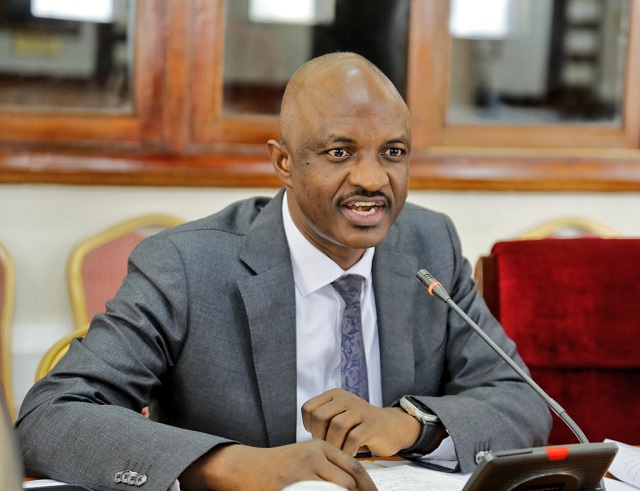
Kampala, Uganda | THE INDEPENDENT | The implementation roadmap of the rationalization program for 69 government institutions ends this month, with the new approved structures taking effect on July 1 with the new financial year.
The Permanent Secretary at the Ministry of Finance, Planning and Economic Development, Ramathan Ggoobi said that the departments, agencies, and authorities were put in place by law and that the same process had to be followed to restructure them.
This follows questions from different sections of the public over the process that was proposed five years ago but seemed to have gone silent over time.
Arthur Bainomugisha, the Executive Director ACODE (Advocates Coalition for Development and Environment), wondered why the program was not being implemented despite its projected benefit to the country, including increasing productivity and reduced spending.
The plan is expected to save the government at least 800 billion Shillings per year. It is aimed at, among others getting rid of duplication of roles by the government through merging and abolishing some agencies.
Ggoobi, told the media in Kampala ahead of the 2023/24 national budget day next week, that implementation is ongoing, especially regarding the legal framework. He said implementation is concurrent with the rationalization of public projects to terminate those that are not performing or have stalled, with plans to penalize the responsible accounting officers.
A cabinet decision in Feb 2021 directed the Ministry of Public Service to rationalize government institutions through mergers, mainstreaming, and transfers to eliminate functional duplications, overlaps, and reduction of public expenditure.
The cabinet approved the recommendations for the exercise targeting government agencies, commissions, authorities, and public expenditure and approved the implementation roadmap spread over a period of two years from 2021/2022 to 2022/2023.
This was adjusted to the end of December 2023. The structural recommendation for the 69 agencies identified for merger, mainstreaming, and transfer of functions was designed and approved by the cabinet with adjustments over time.
Currently, the implementation team is discussing the legal framework that gives effects to the approved structures under the new dispensation, with the implementation of the approved structures planned for July 1, 2023, according to the Public Service Ministry.
The Public Service Ministry Permanent Secretary, Catherine Bitarakwate said starting July 1, these institutions will open under the new structures, adding that the staff affected by the restricting will be published after the ongoing legal reviews are completed.
In several sectors, preparations have been taking place with contracts of some agency heads either not renewed or reviewed.
At the Ministry of Energy and Mineral Development, for example, electricity generation is being withdrawn from private sector contractors back to the government agencies, while the Rural Electrification Agency was reintegrated as a department under the ministry.
According to the plan, 33 agencies will see their function mainstreamed back to the sector ministries, while 63 will be merged, according to the plan. It shows that only 61 will be retained, under the different sectors.
Julius Mukunda, the Executive Director, of the Civil Society Budget Advocacy Group, CSBAG, said the government must start taking hard decisions for the sake of reducing budget expenditure and wastage.
He said apart from the duplication of roles through many agencies, public resources are also being spent on projects that are not performing, and yet some of the money sunk into these projects is debt that the public is servicing.
Mukunda since such projects should be stopped but also that the accounting officers responsible for their non-performance should be penalized.
According to him, these are some of the issues that have seen the government’s discretionary spending space reduce because a lot of resources have to first go to salaries and wages and debt services among others, leaving vital services chocked.
Ggoobi said the government is implementing many other projects that are aimed at cutting spending, which will release resources for other critical areas. These, according to him, include cutting government travel, workshops, and reduction in the government fleet.
****
URN
 The Independent Uganda: You get the Truth we Pay the Price
The Independent Uganda: You get the Truth we Pay the Price



